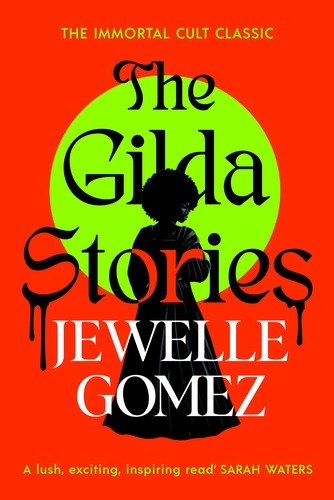I am thrilled to be part of ‘Writing the Occult: Vampires’; it is taking place online on Saturday 28th October, 1pm-9pm (UK time). It features a wide range of speakers and sessions for writers and readers in the genre including: Making the vampire trope your own; Vampire adaptations; The vampire as romantic lead; World-building for vampire tales; Gothic feminism; And more! I am going to be presenting on the folkloric vampire and its representation in fiction. You can view the full programme and the speakers here (and listed below)

You can book via this Eventbrite page. Early bird tickets £40 (until 30th September). Regular tickets £45 (until 26 October).
One of the most exciting things about this event for me is that if features legendary writer Jewelle Gomez author of The Gilda Stories (1991). Gomez is celebrated this month in The Guardian as ‘the black lesbian writer who changed vampire fiction and the world’
Her book deconstructs and recasts the vampire in the shape of a Black lesbian bloodsucker. It was the first novel in the US to be published with such a protagonist. Gomez takes as her starting point Sheridan Le Fanu’s 19th-century vampire heroine Carmilla, reimagining her as an enslaved black child taken in by a vampire coven. She navigates desire, violence and oppression within the marginalised communities in which she finds herself, from 1850s Louisiana through the feminist movements of the 70s and 80s, to the dystopian future of 2050.
I first came across references to Gomez in Miriam Jones’s essay ‘The Gilda Stories: Revealing the Monsters at the Margins’, in Blood and Roses: The Vampire as Metaphor in Contemporary Culture (1997), pp. 151-169 and she’s also discussed in Gina Whisker’s essay ‘Love Bites: Contemporary Women’s Vampire Fiction’, in David Punter’s Companion to the Gothic (2001), pp. 167-180. Her novel is still being celebrated for defining a whole generation of supernatural tales:
The Gilda Stories’ vampire mantra of “we take blood, not life, and leave something in exchange” defined a new generation of supernatural storytelling. It also exemplified the tenets of inter-community solidarity that Gomez had become accustomed to as an activist in the Black Power, feminist and LGBTQ movements of the 70s and 80s. “Writing speculative fiction has been a political act for me,” she says. Since The Gilda Stories’ release, Gomez’s character has popped up in various other short stories and on stage in her play Bones & Ash. She is set for a return in a “more interior” sequel Gomez is penning called Gilda: Blood Relations (Hannah Flint, The Guardian, 6 Sept, 2023)

This immortal cult classic has been re-released this month; you can browse the new edition online via Penguin. Do sign up and meet with us online, along with the other speakers, on 28th October at Writing the Occult.

